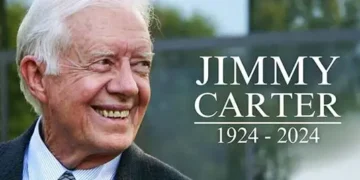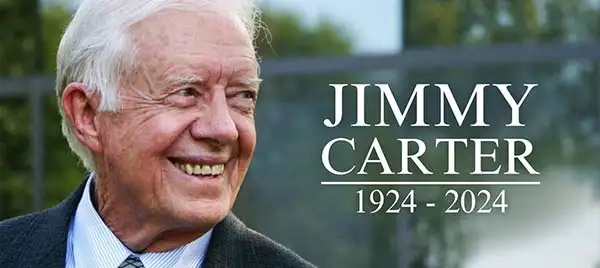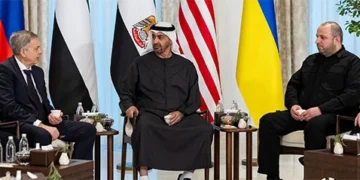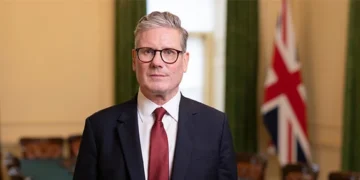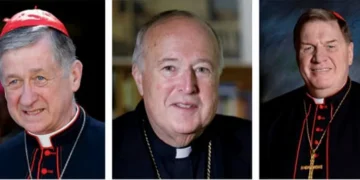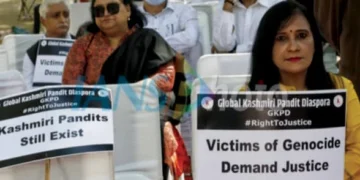 As we bid farewell to former President Jimmy Carter this week, his legacy of service and compassion serves as a powerful reminder of the importance of a caring economy. Carter’s life exemplified the principles of servant leadership, humility, and unwavering commitment to improving the lives of others. His dedication to humanitarian causes and his tireless efforts to build a more just and equitable world align perfectly with the concept of a caring economy.
As we bid farewell to former President Jimmy Carter this week, his legacy of service and compassion serves as a powerful reminder of the importance of a caring economy. Carter’s life exemplified the principles of servant leadership, humility, and unwavering commitment to improving the lives of others. His dedication to humanitarian causes and his tireless efforts to build a more just and equitable world align perfectly with the concept of a caring economy.
A Paradigm Shift
A caring economy is one that values both paid and unpaid care work, recognizing the significant contribution of caregivers to our broader economic system. It’s an economic model that prioritizes the well-being of people and communities over profit alone. In a caring economy, we would ensure that those providing care are not forced to sacrifice their economic security to do so.
A caring economy also prioritizes the well-being of families through policies such as paid family leave and sick time. These measures allow workers to care for loved ones without fear of losing their jobs or financial stability. Furthermore, it advocates for secure retirement for all workers, including those who take time out of the workforce for family care, acknowledging that caregiving should not come at the cost of long-term financial security. Lastly, it promotes workplace flexibility that allows for successful work-family balance, recognizing that a fulfilled workforce is a productive one.
Carter’s Life: A Testament to Caring Leadership
Jimmy Carter’s life and work embodied the principles of a caring economy long before the term gained prominence. His dedication to service began in his youth and continued throughout his presidency and beyond. Carter’s humble beginnings in rural Georgia, without plumbing or electricity, shaped his understanding of the challenges faced by ordinary Americans.
As president, Carter prioritized human rights and environmental protection, establishing the U.S. Department of Energy and championing conservation efforts. His commitment to these causes stemmed from a deep-rooted belief in stewardship and care for God’s creation. Carter’s presidency was marked by a focus on diplomacy and peace-making, exemplified by his role in brokering the Camp David Accords between Israel and Egypt.
Post-Presidency: A Model of Purpose-Driven Service
After leaving office, Carter’s life became a powerful example of purpose-driven leadership. Through the Carter Center, he and his wife Rosalynn dedicated themselves to advancing global health, human rights, and democracy. Their efforts were wide-ranging and impactful, touching lives across the globe.
One of the Carter Center’s most notable achievements has been its work in eradicating diseases. The organization led efforts to eliminate Guinea worm disease and other neglected tropical diseases, dramatically improving the quality of life for millions in affected regions. This work exemplifies how caring leadership can address seemingly insurmountable challenges through persistence and dedication.
Carter’s commitment to promoting human rights was unwavering. He advocated tirelessly for marginalized communities worldwide, using his platform to shine a light on injustice and oppression. His efforts in this arena demonstrated that caring leadership extends beyond national borders and embraces the inherent dignity of all human beings.
The Carter Center’s work in monitoring elections in developing nations has been crucial in promoting democracy and ensuring fair political processes. By lending his credibility and expertise to these efforts, Carter showed how caring leadership can strengthen the foundations of democratic societies.
Perhaps one of the most tangible expressions of Carter’s caring leadership was his work with Habitat for Humanity. By personally participating in building homes for those in need, Carter demonstrated that no task is too humble for a true leader and that direct action in service of others is a powerful form of care.
These initiatives demonstrate how a caring approach to leadership can create ripples of positive change far beyond one’s immediate sphere of influence. Carter’s post-presidency work serves as a blueprint for how leaders can continue to make a difference long after leaving formal positions of power.
Lessons from Carter’s Leadership
Carter’s life offers valuable lessons for leaders in all sectors, providing a roadmap for how to embody the principles of a caring economy in both personal and professional spheres.
First and foremost, Carter exemplified humility in service. He showed that true leadership is about serving others, not seeking personal glory. This approach to leadership fosters trust and inspires others to contribute their best efforts to a shared cause.
Carter’s deep Christian faith motivated him to work tirelessly for the betterment of others, demonstrating how personal beliefs can be a powerful driver for positive action in the world. His faith-inspired service transcended religious boundaries, showing how spiritual principles can be applied universally to create a more caring society.
After losing re-election, Carter displayed remarkable resilience and forward-thinking. Instead of dwelling on defeat, he defined an inspiring future mission for himself. This ability to pivot and find new ways to serve is a crucial skill for leaders in a rapidly changing world.
Throughout his life, Carter maintained a commitment to lifelong learning. Even as a former president, he remained eager to learn from others, including students. This openness to new ideas and perspectives is essential for leaders who wish to stay relevant and effective in their service.
Carter’s seven-decade marriage to Rosalynn was a testament to partnership in purpose and mutual support in service. Their relationship demonstrated how shared values and a common commitment to caring for others can strengthen personal bonds and amplify one’s impact on the world.
The Care Economy: A Path Forward
As we reflect on Carter’s legacy, we must consider how to build a more caring economy that aligns with his values. This involves several key steps that can transform our economic systems to prioritize care and compassion.
First, we must recognize the economic value of unpaid care work provided by families and communities. This work, often invisible in traditional economic metrics, forms the foundation of our society and deserves acknowledgment and support.
Investing in care infrastructure is crucial. This means developing policies and systems that support caregivers and those who need care. It includes creating robust social safety nets, improving healthcare access, and ensuring that caregiving professions are well-compensated and respected.
Promoting gender equality is an essential component of a caring economy. Addressing the disproportionate burden of care work on women requires systemic changes in workplace policies, social norms, and economic structures.
Finally, integrating care considerations into macroeconomic decision-making is vital. Economic policies should be evaluated not just on their financial impact, but on how they affect the well-being of individuals, families, and communities.
Carter’s Enduring Impact
Jimmy Carter’s life serves as a powerful reminder that one person’s efforts, when driven by compassion and a sense of purpose, can create meaningful change. His commitment to humanitarian work, from housing projects to eradicating diseases, demonstrated that even after holding the highest office in the land, there is always more work to be done in service of others.
Carter’s passing marks the end of an era, but it also presents an opportunity for renewal. As we remember his life of service, we are reminded of the power of individual action in creating a more caring world. Carter’s example challenges us to look beyond our own interests and consider how we can contribute to the well-being of our communities and the world at large.
Jimmy Carter’s life reminds us that true greatness lies not in status or power, but in service. As we move forward, let us strive to build an economy and a society that reflects this profound truth – a caring economy that honors the dignity of all and works tirelessly for the common good. In doing so, we not only pay tribute to Carter’s memory but also pave the way for a more compassionate and equitable future for generations to come.
Tune into our weekly conversation and share your comments via Twitter to @Tusnik or on LinkedIn with @TobyUsnik.
